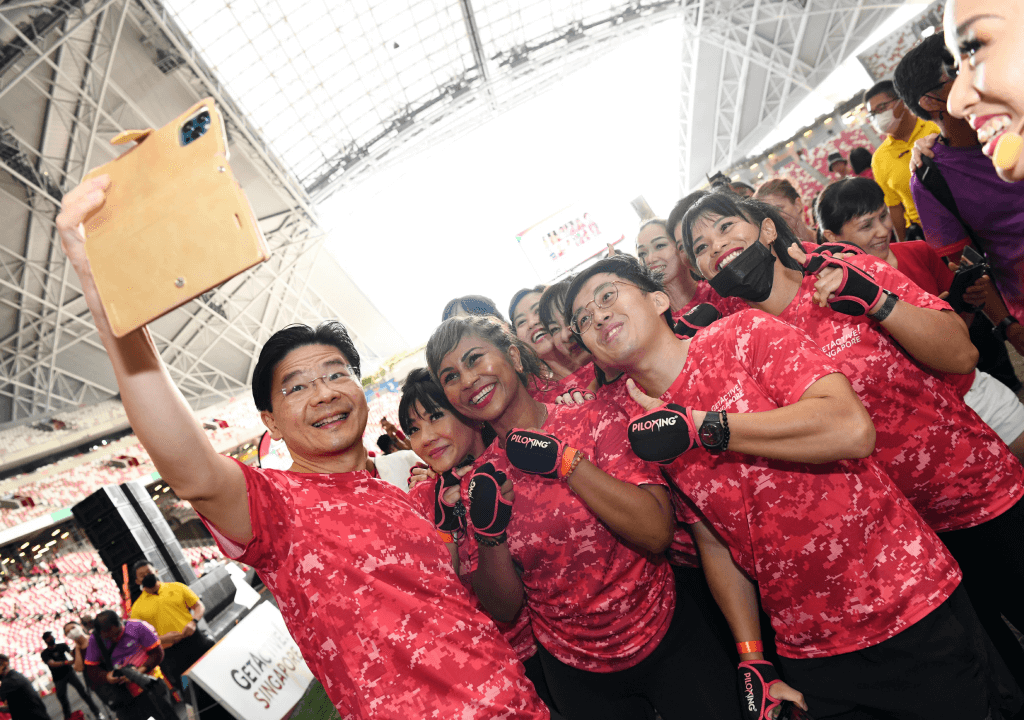Can Lawrence Wong’s Social Media Skills Secure Gen Z Votes?

No doubt, social media is the best way to connect with youth, especially Gen Z. They spend more time on social media than on newspapers or television channels, and they don’t believe in conventional media. Therefore, politicians are keen to attract Gen Z voters by using social media. If the content and campaign are entertaining or convincing, people won’t care about the leader’s past or stances. That’s why many political leaders around the world cunningly use social media to attract Gen Z voters. Despite past scandals or policies, Gen Z voters love the performance on social media platforms and dislike conventional media’s propaganda and edits. This trend has been observable for decades in Western countries and is now spreading to Asia as more people use smartphones and the internet. Leaders like Narendra Modi and Prabowo have greatly benefited from their social media campaigns. Even though Singapore, traditionally not involved in social media-driven politics, is catching up as the Deputy Prime Minister and main candidate of the next general election in 2025, Lawrence Wong becomes active in the social media space, sensing the trend in neighboring countries.
In the upcoming general election in Singapore, a significant portion of the electorate is composed of Gen Z voters, similar to many other Asian nations. Singapore was reaching its “youth peak” in the last general election in 2020, with a large proportion of its demographic pyramid apparently made up of people in their 25s to 35s. Roughly a third of eligible voters were in their 20s and 30s. The youth voters will be high for the next general election too. Analysts believe that Lawrence Wong needs to dominate social media if he wants to win over young voters in the upcoming general election. So, Wong is making significant efforts for this. Wong, who was not strong previously in the social media space, is now creating accounts and posting social media content. Lawrence Wong’s first foray into TikTok in June 2020 was a 51-second video of him in a white collared shirt wishing netizens a happy Mid-Autumn Festival, with barely legible font and no pop track in the background, a typical mistake for every elder social media user, but he understood the mistake as he was punished with lower engagements. Since then, Singapore’s Deputy Prime Minister Wong’s content has undergone a nearly total makeover, featuring smooth transitions and hit pop songs with beats, typically trimmed to no longer than 30 seconds. And it worked well. He appeals more to youth now and gains a TikTok base of 120,000 followers.
The 51-year-old, slated to become the first prime minister of Singapore born in the post-independence era, is also a figure whose political trajectory has been and will remain closely tied to the ever-evolving landscape of social media. Although some videos may not have resonated as strongly as others featuring him playing the guitar or participating in charity motorcycle rides, experts assert that political leaders must adeptly navigate the digital sphere to avoid being deemed “Cringe” by young voters during elections. Acknowledging this, the People’s Action Party (PAP), currently in power, has spent the last few years attempting to dominate various platforms. Alongside traditional media, the government frequently uses social media to make significant announcements. And now, all the important shifts in office are also declared through social media. Prime Minister Lee Hsien Loong, 72, for example, announced on Monday his decision to hand over the reins to Wong on May 15 through a statement on social media. In Singapore, political officeholders now typically employ this method.
It’s interesting that Asian leaders are putting more effort into social media campaigns, portraying themselves with super charismatic characters, particularly in their attempts to reach Gen Z voters, and it’s proving effective. The biggest examples are India and Indonesia. On social media, Narendra Modi is cultivating an image of a strong, Hindu, powerful leader capable of embodying the old Hindu emperors from history books. Youth resonate with this image, sharing content with powerful music, urging others to vote for Modi. Similarly, in Indonesia, Gen Z seems uninterested in Prabowo’s shady past, focusing instead on his endearing actions as a grandfather figure portrayed on social media. And it’s working. The “Cute GrandPa” campaign was a superhit. Prabowo has gained a significant number of Gen Z votes. So, how can Wong stand out from this trend? The power of social media influence, combined with effective social media skills, has become a necessity for political leaders.




